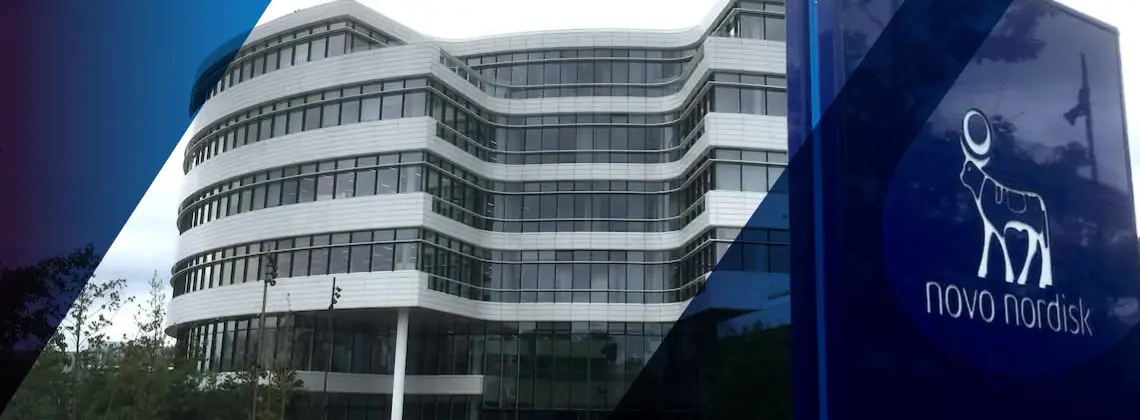News analysis
What’s going on at Novo Nordisk?

What’s going on at Novo Nordisk? The latest headache for the pharma giant involves a corporate governance standoff that’s seen multiple directors leave their roles.
The Danish company has dominated medical news headlines for decades. Most of it has been good news, with the company being renowned for advances and market domination in areas like diabetes and anti-obesity.
That said, 2025 has not been a good milestone in its long history.
Multiple directors, including the chair of the board, have resigned over differences between them and a majority shareholder that can’t be reconciled. It’s the latest in a string of tough days for the company, and suggests a lack of direction at the top which, combined with other internal and external challenges, spells out a pretty bleak period for a global brand with a century-long track record.
What’s going on at Novo Nordisk?
A significant rift between the board (as it was at the start of October 2025) and Novo Nordisk’s majority shareholder – the non-profit Novo Nordisk Foundation – has now resulted in what’s been described as a “surprise shake-up” at the company.
- Seven board members, including the chair Helge Lund, have resigned.
- Before the resignations, the board had been in discussions with the Foundation about its future make-up, but no agreement was reached.
- Lund said that, ‘the Board proposed a renewal focusing on addition of select, new competencies while also maintaining continuity, whereas the Board of the Foundation wanted a more extensive reconfiguration’.
- MSNBC news reported that, while there was no major disagreement over company strategy, the board’s speed in decision-making was the subject of intense debate.
- An extraordinary general meeting has been scheduled for November.
That “boardroom speed” issue mattered a lot earlier in the year during the high-profile replacement of then-CEO Lars Fruergaard Jørgensen. The Foundation wanted a quick appointment, while the board wanted a longer selection process. Those differences of opinion now seem to have tipped in favour of the Foundation, which despite owning only 28.1% of the company, has around three-quarters of the share of voting rights.
What’s the wider context
The wider context is that Novo Nordisk is struggling, and its most impactful stakeholders were at odds over how to address it.
Then CEO Jørgensen’s ousting earlier in 2025 followed a turbulent time for the company, in which competitor products began making inroads. The company also revised its forecasted growth downwards, engaged in resource reshuffling to focus more on its diabetes and obesity businesses, and laid off around 11.5% of its workforce globally.
While the company is taking action, the Foundation is clearly more eager to see decisions made quickly. Up till now, the board has been at least partly reluctant to follow those desires. It brought the question of the balance between due diligence and urgency to centre stage.
Urgency vs due diligence
The tug-of-war between these two principles can manifest in different companies in different ways, but in this case, it’s especially important because it has resulted in a major shake-up at the board level.
The trouble is that both concerns are logical as far as boardroom principles go.
Novo Nordisk is in a period of crisis, and so it is a natural – if sometimes knee-jerk – reaction to want tough decisions to be made quickly, especially if it concerns something as crucial as having an able CEO in place.
That said, any good board member will know the importance of not rushing into any decision. Tough calls need to be made on the back of extensive information and essential questions. If the board doesn’t have this or rushes through this process, they might miss important factors and, ultimately, make the wrong call.
In the case of Novo Nordisk, the Foundation has more than enough voting power to have the upper hand, so even if a significant chunk of the board doesn’t like its desired speed of decision-making, at the end of the day, the Foundation gets what the Foundation wants.
The result is that the new board makeup might align more with faster decision-making, which in turn may create streamlined processes that are better able to keep the organisation moving through the current difficult period.
The flip side is that, without proper management, faster decision-making can sometimes lead to lax oversight. This is a risk; perhaps not one with immediate consequences, but a risk nonetheless. Using the CEO case as an example, it is entirely possible for someone hired in haste to be the wrong person for the job. Depending on the scale of that mistake, it could set the organisation back in terms of its value, investment potential or public perception.
What’s next?
Novo Nordisk will have a new board makeup and a chair more closely aligned with the values held by its effective majority shareholder.
The advantage is that this should lead to fewer internal disagreements over decision-making processes, and it may be the faster pace the company needs right now.
The disadvantage lies in the risk that moving faster results in weaker oversight, as well as having more like-minded individuals on the board who won’t challenge the status quo.
We’ll need to wait to see if the new appointments will have an impact on the company, especially if there’s more bad news to come that will put the board to the test.





